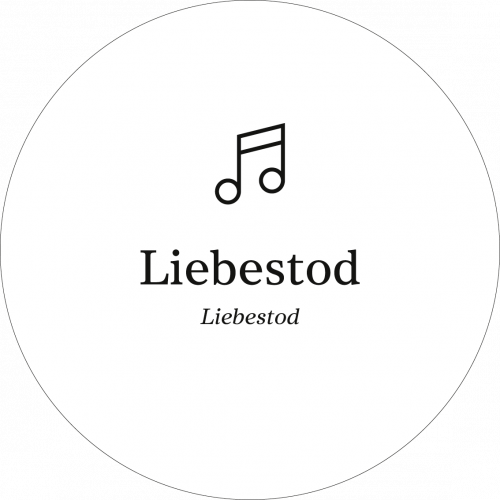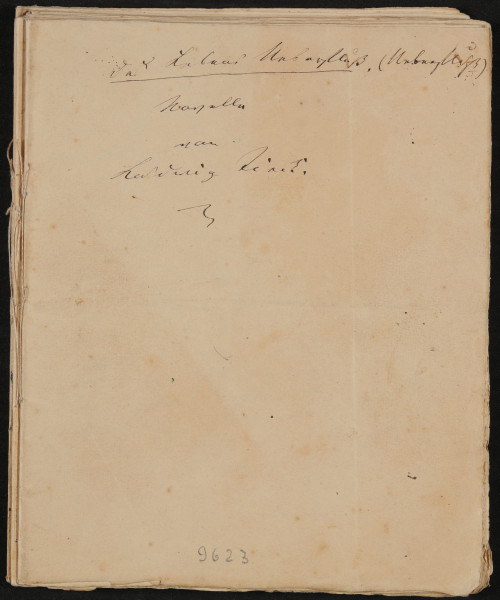Ludwig Tieck’s novella Abundance of Life was published as a Urania paperback in 1839. The manuscript is on view in the display case. The author considered the text one of his “most well-wrought little works”, as he confided to his publisher.
The story revolves around the quintessential Romantic theme: A young couple barricade themselves against the rest of the world. In the eighteenth century, a new understanding of the ties between man and woman had gradually taken hold: marriage was no longer viewed as a matter-of-fact contractual relationship, but as a bond of love between two human beings. The Early Romanticists further radicalized this conception by regarding the two sexes as equal. The modern idea of “romantic” love was born: lovers now had license to disregard all rules because they were destined for one another.
In Tieck’s novella, it is the rules of social standing that threaten to keep the bourgeois Heinrich and the aristocratic Clara apart. They elope, secretly marry, and move into a small attic flat where they seal themselves off from the world. With their parents and the police on their trail, they can no longer leave their hideaway. They are plagued by hunger, having only an old nursemaid to depend on for the barest necessities. To keep from freezing to death, Heinrich tears off the steps leading up to their attic, one by one, to use as firewood.
Tieck here juxtaposed different perspectives on reality with biting irony: what is to the pragmatic landlord a solid stairway is to the moony Heinrich nothing but a “ladder for upstarts” or a “donkey bridge for boring visits”.
Tieck wrote his novella entirely in the Early Romantic spirit: he constantly has the couple romanticize about their poverty by imagining themselves into a true paradise. Nevertheless, the author also kept sight of the more problematic aspects of everyday life — in the form of police pursuit, hunger, and fear of revolution. And he also addressed the harsh realities of the book market: in a dream, Heinrich has himself auctioned off as an author — a clear allusion to the commodity character of literature.
Every good novella includes a surprising turn of events: in this case it is sparked by a costly book. By chance, Heinrich’s beloved first edition of the works of Geoffrey Chaucer falls into the hands of his friend Andreas. The latter finally brings it back to Heinrich — along with a great fortune. The couple is saved and the novel ends with the sentence: “The two contemplated the content of human life, its need, excess, and secret. – –”

